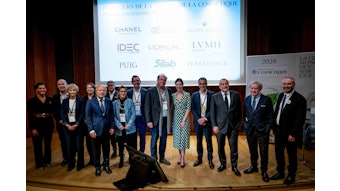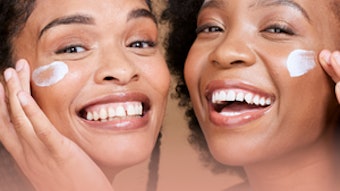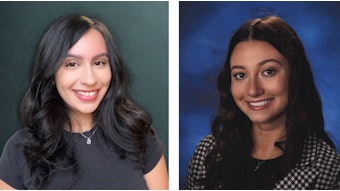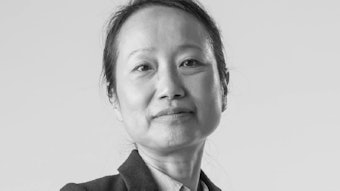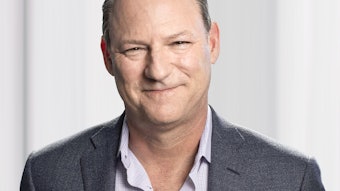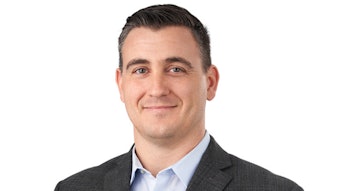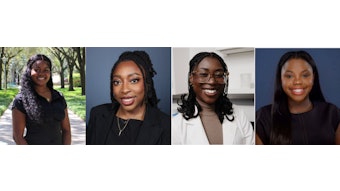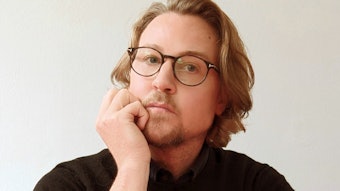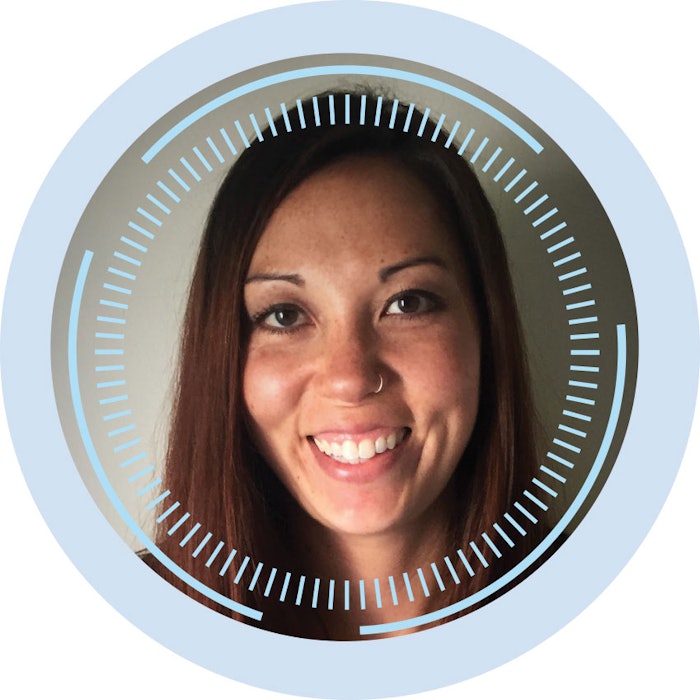
Kristin Katakami started working in the beauty industry when she was seventeen, as a salon technician at EvelineCharles Salon and Spas in Canada. She went through an apprenticeship and industry training to obtain her license as a hair stylist, specializing as a colorist. While working in the salon, she was studying for her bachelor of science degree in chemistry. “I absolutely loved chemistry, something not a lot of people can say!” she writes.
Two years into her degree and five years working in the salon, she decided to merge her love for the beauty industry and chemistry together and applied to the University of the Arts London for a bachelor’s degree in cosmetic science. She was accepted and in 2008, was off to explore, experience and chase a dream career. The degree was a four-year program with a placement year in industry, where she worked at BASF in Ludwigshafen, Germany, as a research intern.
“It was a great experience as BASF is a manufacturer of raw materials, so I was able to gain experience formulating at the bench, focusing on the performance attributes of the materials, specifically on hair, which was right up my alley,” she wrote.
She then went back to London for her final year of university and shortly after graduating, was employed as a development chemist at Laleham Health and Beauty in Hampshire, UK. Working at a cosmetic manufacturer, she gained experience in the whole process, from concept through to launch. She worked with global and national brands, and on an array of different formats of products. It was here that she confirmed her love for her career.
“I had fire in me to go to work each day and this was something I had been working toward and couldn’t believe I had my dream job.”
She quickly learned much at Laleham, about the industry, brands, processes—as well as what she was good at and how she wanted to further her career. She loved the creative side of research and development, and working closely with brands to launch successful products into the market.
An opportunity then came up in Australia, to be a part of an innovation team in research and development. The role was to not just focus on briefs from brands, but to be proactive and innovative to pitch concepts and formulate products to new or existing brands. She was offered the role and in late 2015, moved to Sydney, Australia. Recently, she was contacted by EvelineCharles Salon and Spas, which explained its strategy to bring cosmetics manufacturing in as a part of the business.
“They wanted to know where I was in my career, my successes and what my aspirations were,” she wrote. “After many discussions and a visit back to Canada, I decided to accept this amazing opportunity, to bring my passion and love back home and come full circle back to the company that started me in the industry.”
C&T: Who are/were your mentors?
KK: All of my professors and tutors in London took me into the cosmetic science world like I never knew was possible. Each and every thing they were teaching me through my four years excited me and related to exactly what I wanted to be doing. They sparked my passion even more so, and gave me the opportunity, guidance and support to do the best I could do in the course—and I graduated with first class honors.
As I have grown in my career, my mentors have changed as my aspirations have grown. Now, my mentors are the women I work with and for at EC Labs. Eveline Charles and Lina Heath are successful, strong, determined businesswomen in the salon and spa industry in Canada, who are now taking on the cosmetics manufacturing industry. Their vision, passion and drive will prove successful in the business, and I am so honored to be a part of it with them. These two women are the kind of women I aspire to be like and have looked up to since I was first employed by them thirteen years ago.
Broad Spectrum
C&T: What interests do you have, or current work are you conducting, that relates to cosmetics?
KK: I have always been interested in the beauty industry. I love cosmetics and am always immersed in them, either by using them as a consumer, testing them as a chemist, or reading about them on social media or in the press. I have been all along the spectrum: as a professional in a salon, working with different hair types and knowing what I need from a product; as a consumer, constantly assessing my products and their performance and my technical experience with raw materials; and now as a cosmetic chemist. I believe it differentiates me, having these varied experiences. I can understand a brand's vision and values, how a consumer would want the product to work or be used, and how I can accomplish that as a chemist. So I am constantly conducting research relating to cosmetics.
Product Awards, Regulations and Development Time
C&T: What do you like most about your work? What do you like least?
KK: I love seeing a product from concept through to delivery, working with brands to develop and successfully launch a product into the market. To see that success when walking into a shop where a formulation I developed is on the shelves, or when I read celebrities talking about products I have worked on. The best is having products win beauty awards.
The hardest part is the regulations on cosmetics, and consumers' or brands' perceptions of what is not good for you. This can really limit the development of high performance products. [In Canada], cosmetics are regulated much more even than in the food industry. The difference between eating and applying is substantially different, yet our industry is the one being cracked down on the hardest.
C&T: What do you find most challenging about your work?
KK: The most challenging part of my work is time and costs. If I could have all the time and a massive budget, I could make a product that hits any and all the claims brands are looking for. Unfortunately, both of these factors play a major role in my work. The timeframe from when a brief is given, to when the brand wants the product in their warehouse is becoming shorter and shorter, with costs decreasing and performance requirements increasing. It's a tough balance.
Packaging Potential
C&T: Give an example of an observation or a problem you solved or identified that you think has potential application in the cosmetics industry.
KK: We focus a lot on the bulk of a product, which of course is the key player, but I think there is some opportunity to focus on the packaging of cosmetics. Not the types or abilities of them, as there is a lot of choice and technology already, but the amount and cost of packaging that goes into products—here, there is opportunity to look at more sustainable options.
When a consumer purchases a product, often and most certainly with high-end packaging, the cost of the pack exceeds the bulk significantly. I think we could look at this issue and give consumers other options while they still benefit from the product’s performance, and with the possibility to have more cost going into the bulk.
Working Together
C&T: What about the cosmetics and personal care products industries excites you? How would you like your role in the industry to evolve?
KK: The cosmetics and personal care industry is exciting to me because it is always changing, the goal posts are always moving, with new trends, new technologies and therefore, new products. Across the globe as well, trends are different, product requirements are different based on demographics, climate, age, gender, occupation—you name it!
I have always wanted my role to evolve further from the development side of a cosmetic chemist. I have been pushing forward from the beginning of my career to not only formulate, but to work closely with brands to really understand who they are and what their vision is so together, we can develop the best product from both a technical and brand sales side.
C&T: How is the industry helping to make this evolution happen? How could assistance improve?
KK: I believe the industry is making this evolution happen as the consumer is shifting toward the science behind beauty, therefore brands are shifting that way and needing to work closer with technical teams. Consumers are not just accepting that products do what they say; consumers want to understand how the product is doing it and by what means. They want to know what is in their products and how this affects their hair, skin or nails.
Consumers are buckling down on the performance of products as well; if it doesn’t do what you claim it does, you can bet they will let you know. A chemist cannot just make a product from a brief any more, we need to understand our brand and our consumer. We need to develop a product that delivers to the consumer’s requirements and test that product to ensure its efficacy. The competition is too high, there are too many brands and products out there to fall short on the technical side.
C&T: What areas or technologies do you think are untapped for cosmetics R&D?
KK: Really pushing the boundaries of technology in raw materials can provide some great opportunities. As an example, I have worked a good amount on sunless tanners and struggled to find new and innovative materials with which to work. Merging raw material manufacturing and cosmetics manufacturing could bring us to a new level and lead to some great new materials with specific performance attributes and unique materials and possibilities for brands. I would love to work closely with a chemist to develop raw materials for specific products’ briefs, needs or concepts, to possibly shape new materials that are completely unseen.
Personalized Benefits
C&T: How do you envision the cosmetics/personal care industry of the future?
KK: The cosmetics and personal care industry will continue to grow and grow, with the number of products not just in the main categories, but broken down into further segments for even more individualization—for different skin tone, texture, climate, age, hair color, type, length, strength or when or where we use our product.
This level of diversity will continue to develop and we will see more and more products for the specific use and the specific user; after all, I don't just want a shampoo to clean my hair, that's only the primary use. I want the shampoo to hydrate it, condition it, add vitamins and actives to it, enrich the color, help stop color from fading and make it look shiny, of course. Individualization will continue to grow in the future, maybe to a point where consumers are able to individualize their own products.
